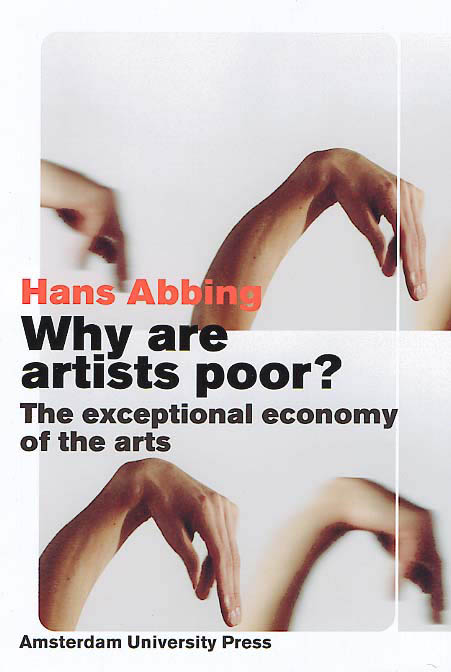Jonas Staal: Art, Property of Politics I-II (2010) [English/Dutch]
Filed under catalogue | Tags: · art, censorship, ideology, netherlands, politics


“In 2010, Dutch artist Jonas Staal realized the exhibitions Art, Property of Politics and Art, Property of Politics II: Freethinkers’ Space in which he researched the art collections of Dutch political parties. The first part took place in exhibition space TENT in Rotterdam, during the municipal elections of 2010, in which he showed the artworks of all parties involved in the elections. In a documentary produced by filmmaker Rob Schröder he challenged politicians to introduce their political vision based on their own art collections. The second part took place in the Van Abbemuseum in Eindhoven, the Netherlands and existed of artworks that were selected by the liberal People’s Party for Freedom and Democracy (VVD) and the Party for Freedom (PVV) in their so-called ‘Freethinkers’ Space’: and exhibition space that the parties opened in Dutch parliament to give a platform for artists that had dealt with religious (Islamic) censorship. The project focused on the way in which artworks were used as instruments for representing a political idea of democratic freedom.” (from Wikipedia)
Author (Art, Property of Politics)
Author (Art, Property of Politics II: Freethinkers’ Space)
Wikipedia
PDF (I, updated on 2018-7-26)
PDF (II, updated on 2018-7-26)
Hans Abbing: Why Are Artists Poor? The Exceptional Economy of the Arts (2002)
Filed under book | Tags: · aesthetics, art, art criticism, art history, economics, gift economy, market, money, netherlands

“Most artists earn very little. Nevertheless, there is no shortage of aspiring young artists. Do they give to the arts willingly or unknowingly? Governments and other institutions also give to the arts, to raise the low incomes. But their support is ineffective: subsidies only increase the artists’ poverty.
The economy of the arts is exceptional. Although the arts operate successfully in the marketplace, their natural affinity is with gift-giving, rather than with commercial exchange. People believe that artists are selflessly dedicated to art, that price does not reflect quality, and that the arts are free. But is it true?
This unconventional multidisciplinary analysis explains the exceptional economy of the arts. Insightful illustrations from the practice of a visual artist support the analysis.”
Publisher Amsterdam University Press, 2002
Open access
ISBN 9053565655, 9789053565650
367 pages
PDF (updated on 2019-12-12)
Comments (3)Virtueel Platform: Sectoranalyse E-cultuur (2011) [Dutch]
Filed under report | Tags: · copyright, creative industries, cultural politics, digital art, digital culture, innovation, intellectual property, knowledge economy, mobile technology, netherlands, new media art, web 2.0

Nieuwe kunstsector een feit: 400 miljoen euro jaaromzet voor Nederlandse digitale kunst en cultuur.
De Nederlandse digitale kunstsector heeft een jaaromzet van 400 miljoen euro en geeft werk aan ruim 10.000 mensen. Dit blijkt uit de ‘Sectoranalyse E-cultuur’ van Virtueel Platform die maandag 18 juli 2011 uitkomt. Het onderzoek werd uitgevoerd door bureau Veldkamp / TNS NIPO.
De sectoranalyse laat voor het eerst de omvang en karakteristieken zien van de relatief jonge maar snelgroeiende e-cultuursector. Een innovatieve sector die bestaat uit medialabs, kunstenaars, gamebedrijven, festivals, presentatieplekken en media- en kunstopleidingen.
In het rapport zijn vijftien Best Practice, goede voorbeelden van e-cultuur, te vinden.
Trends
Uit het onderzoek blijkt verder dat organisaties sociale media (74%) de meest belangrijke ontwikkeling van het moment vinden, op de tweede plaats komt mobiele technologie (47%). Een struikelblok blijkt onduidelijkheid over auteursrecht, waar 37% van de ondervraagden graag betere oplossingen voor ziet. Websites, interactieve installaties, mobiele media en apps en games met een educatieve of culturele toepassing zijn belangrijke producten.
Innovatieve sector
Directeur Floor van Spaendonck: “Het is nu een feit: het onderzoek bevestigt met cijfers dat e-cultuur een eigen sector is binnen de kunst, met opleidingen, producenten en afnemers. In deze sector vinden unieke experimenten met kunst en nieuwe media plaats. Daarom is het zaak dat de overheid met een stevig e-cultuurprogramma deze ontwikkeling en onderzoek blijft stimuleren. Het werk van medialabs als Mediamatic, Waag, V2_ en andere pioniers draagt wezenlijk bij aan inhoudelijke reflectie en verdieping van de kennismaatschappij”.
Publisher: Virtueel Platform, Amsterdam, July 2011
36 pages
Published under Creative Commons BY-NC
PDF (no OCR)
Comment (0)
